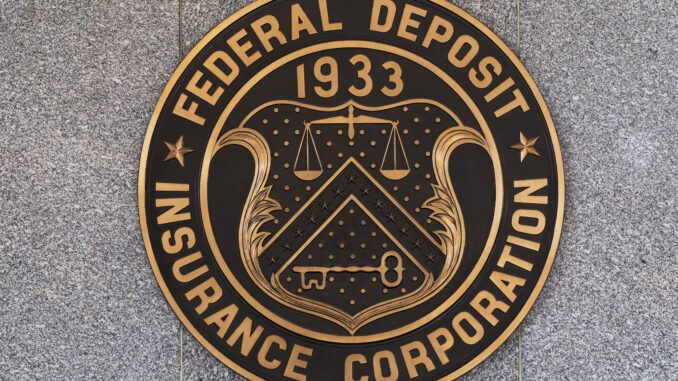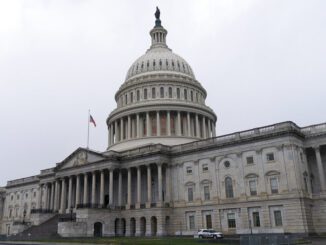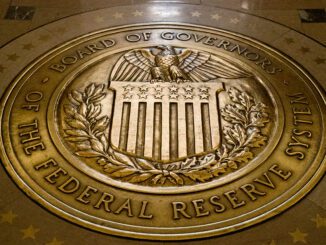
WASHINGTON, D.C. — The government’s response to the failure of two large banks has already involved hundreds of billions of dollars. So will ordinary Americans end up paying for it, one way or another? And what will the price tag be?
It could be months before the answers are fully known. The Biden administration said it will guarantee uninsured deposits at both banks. The Federal Reserve announced a new lending program for all banks that need to borrow money to pay for withdrawals.
On Thursday, the Fed provided the first glimpse of the scale of the response: It said banks had borrowed about $300 billion in emergency funding in the past week, with nearly half that amount going to holding companies for the two failed banks to pay depositors. The Fed did not say how many other banks borrowed money and added that it expects the loans to be repaid.
The goal is to prevent a broadening panic in which customers rush to pull out so much money that even healthy banks buckle. That scenario would unsettle the entire financial system and risk derailing the economy.
Taxpayers will probably bear no direct cost for the failure of Silicon Valley Bank and Signature Bank. But other banks may have to help defray the cost of covering uninsured deposits. Over time, those banks could pass higher costs on to customers, forcing everyone to pay more for services.
Here are some questions and answers about the cost of the bank collapses:
HOW IS THE RESPONSE BEING PAID FOR?
Most of the cost of guaranteeing all deposits at both banks will likely be covered by the proceeds the Federal Deposit Insurance Corp. receives from winding down the two banks — either by selling them to other financial institutions or by auctioning off their assets.
Any costs beyond that would be paid for out of the FDIC’s deposit insurance fund, which is typically used in the event of a bank failure to reimburse depositors for up to $250,000 per account. The fund is maintained with fees paid by participating banks.
Both Silicon Valley and Signature banks had a strikingly high share of deposits above that amount: 94% of Silicon Valley’s deposits were uninsured, as were 90% of deposits at Signature. The average figure for large banks is about half that level.
If necessary, the insurance fund will be replenished by a “special assessment” on banks, the FDIC, Fed and Treasury said in a joint statement. Though the cost of that assessment could ultimately be borne by bank customers, it’s not clear how much money would be involved.
Kathryn Judge, a law professor at Columbia University, said a bigger cost to consumers and the economy could stem from potentially major changes to the financial system that result from this episode.
If all customer deposits were considered guaranteed by the government, formally or informally, then regulations would need to be strengthened to prevent bank failures or lessen their costs when they do happen. Banks might have to pay permanently higher fees to the FDIC.
“It’s going to require us to revisit the entire bank regulatory framework,” Judge said. “That’s far more significant than the modest costs that other banks will pay.”
WILL TAXPAYERS BE ON THE HOOK?
President Joe Biden has insisted that no taxpayer money will be used to resolve the crisis. The White House is desperate to avoid any perception that average Americans are “bailing out” the two banks in a way similar to the highly unpopular bailouts of the biggest financial firms during the 2008 financial crisis.
“No losses associated with the resolution of Silicon Valley Bank will be borne by the taxpayer,” read the joint statement from the Treasury, Fed and FDIC.
Treasury Secretary Janet Yellen defended that view Thursday under tough questioning from GOP lawmakers.
The Fed’s lending program to help banks pay depositors is backed by $25 billion of taxpayer funds that would cover any losses on the loans. But the Fed says it’s unlikely that the money will be needed because the loans will be backed by Treasury bonds and other safe securities as collateral.
Even if taxpayers aren’t directly on the hook, some economists say the banks’ customers still stand to benefit from government support.
“Saying that the taxpayer won’t pay anything ignores the fact that providing insurance to somebody who didn’t pay for insurance is a gift,” said Anil Kashyap, an economics professor at the University of Chicago. “And that’s kind of what happened.”
IS THIS A BAILOUT?
Biden and other Democrats in Washington deny that their actions amount to a bailout of any kind.
“It’s not a bailout as happened in 2008,” Sen. Richard Blumenthal, a Democrat from Connecticut, said this week while proposing legislation to toughen bank regulation. “It is, in effect, protection of depositors and a preventive measure to stop a run on other banks all around the country.”
Biden has stressed that the banks’ managers will be fired and their investors will not be protected. Both banks will cease to exist. In the 2008 crisis, some financial institutions that received government financial aid, like the insurer AIG, were rescued from near-certain bankruptcy.
Yet many economists say the depositors at Silicon Valley Bank, which included wealthy venture capitalists and tech startups, are still receiving government help.
“Why is it sensible capitalism for somebody to take a risk, and then be protected from that risk when that risk actually happens?” asked Raghuram Rajan, a finance professor at the University of Chicago and former head of India’s central bank. “It’s probably good for the short term in the sense that you don’t have a widespread panic. … But it is problematic for the system long term.”
Many Republicans on Capitol Hill argue that smaller community banks and their customers will shoulder some of the cost.
Banks in rural Oklahoma “are about to pay a special fee to be able to bail out millionaires in San Francisco,” Sen. James Lankford, a Republican from Oklahoma, said on the Senate floor.


